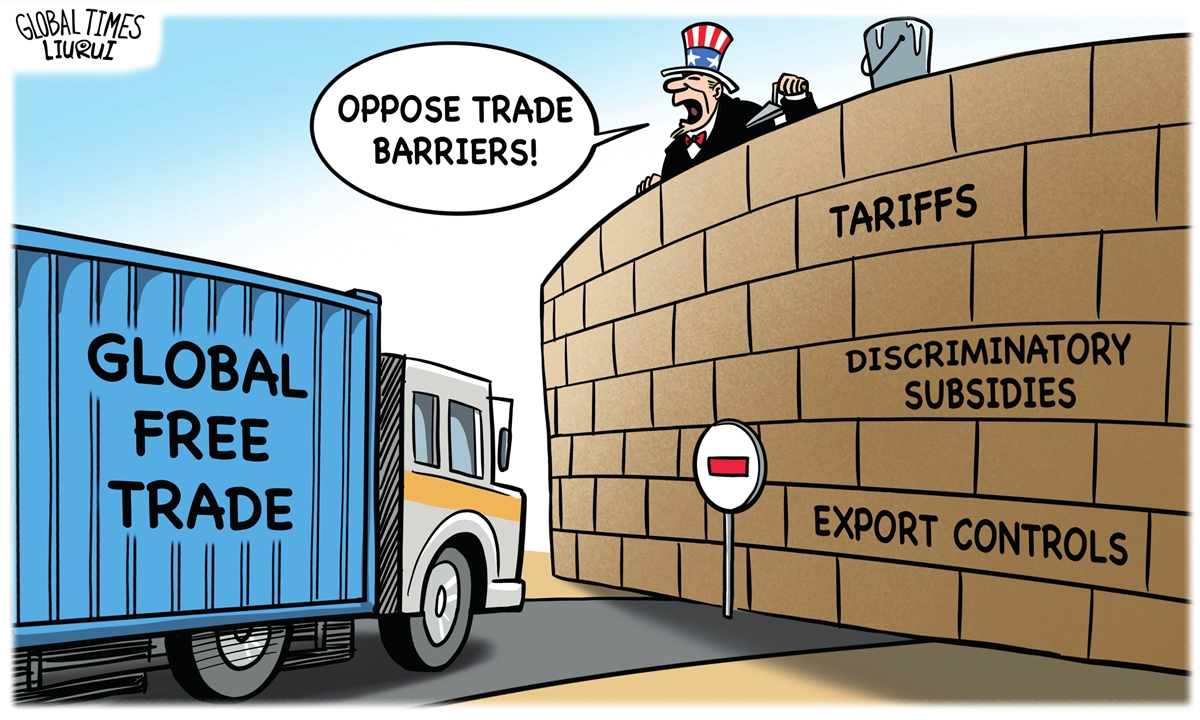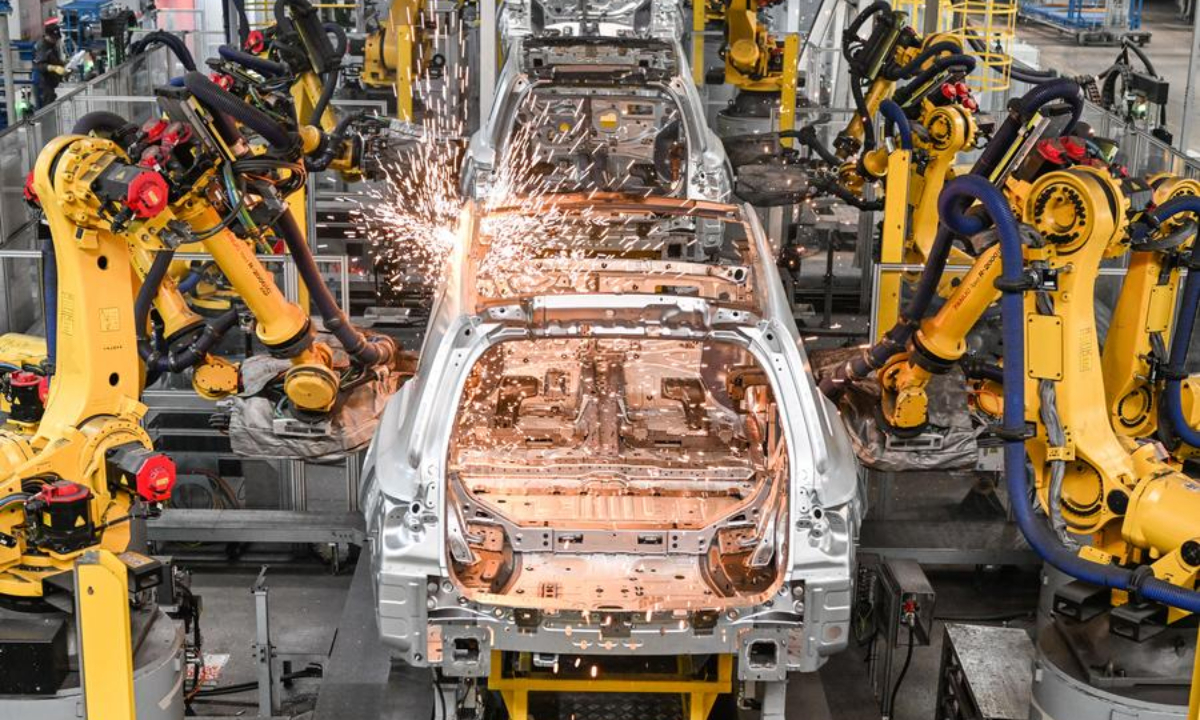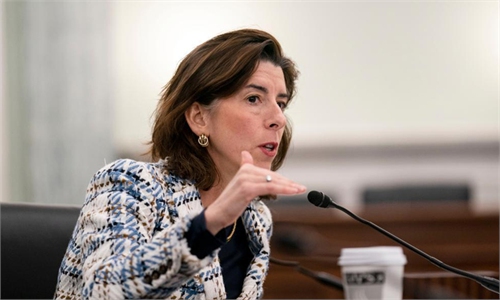US reported tariffs on green Chinese exports, extending trade curbs hurt positive atmosphere of engagement and dialogue: expert

Blocking free trade. Illustration: Liu Rui/GT
The US' reported plan to levy tariffs on imports from China's emerging industries and its commerce department's decision to add 37 Chinese entities in high-tech sectors are steps further down the path of clamping down on Chinese companies and decoupling with China, observers said on Friday, warning that there will be serious consequences.
The Biden administration is set to announce new China tariffs as soon as next Tuesday targeting strategic sectors including electric vehicles, batteries and solar equipment, Bloomberg reported on Thursday.
Also on Thursday, the US moved to tightened its technology crackdown on Chinese firms after the US commerce department added 37 Chinese entities to a trade restriction list, including some companies accused of involvement in the balloon incident in 2023, and also citing other reasons such as national security and links to Russia.
Observers said the illogical and groundless smear campaign by the Western media and politicians to paint a picture over so-called China "overcapacity" in green products will be shown to be no more than a stepping stone for trade protectionist measures that had been long conceived by the Biden administration, which lays bare the US' ulterior motive to crack down on and stymie China's development.
Following US Secretary of State Antony Blinken's visit to China in April, there has been a marked uptick in the US' actions aimed at provoking China in trade and economic matters.
The US has in this week revoked licenses that allowed companies including US chipmakers Intel and Qualcomm to ship chips used for laptops and handsets to Chinese tech giant Huawei. China's Ministry of Commerce on Thursday lambasted US export restrictions on the purely civilian use of chips as a "typical act of economic coercion" while US companies responded that the move would negatively impact their earnings.
US Commerce Secretary Gina Raimondo on Wednesday warned that the US may take "extreme action" and seek to ban Chinese connected vehicles on national security grounds.

Robots weld bodyshells of cars at a workshop of Chinese electric vehicle (EV) maker Li Auto Inc. in Changzhou, east China's Jiangsu Province, Jan 10, 2024. Photo:Xinhua
Analysts warned that as the US government walked away from its pledge to avoid holding back China's economic growth and formulated new measures to crack down on Chinese companies and push for decoupling, it is hurting a positive atmosphere of engagement and dialogue that has been formed up in recent months.
Li Yong, a senior research fellow from the China Association of International Trade, told the Global Times on Friday the US' continued crackdown on China's high-tech sectors and emerging industries is not surprising and represents more of the US saying one thing but doing another.
"The US' continuing to contain and suppress China's development, to build and expand the so-called 'small yard, high fence,' and push toward decoupling is undermining the positive atmosphere of engagement and dialogue happening in recent months with multiple high-level meetings taking place between the two sides," Li said.
International and global business communities have raised grave concerns over the prospects of heightened tensions between the world's two biggest economies and its implications to global economic recovery.
IMF First Deputy Managing Director Gita Gopinath said on Tuesday that escalating tensions between the US and China have caused global ripples and countries are reevaluating their trading and investment partners based on economic and national security concerns, leaving the world divided into three blocs.
China, which had kept a restrained posture in response to US provocations, could strike back when it deemed necessary in this escalating of trade tensions amid US' headstrong trade protectionism, analysts warned.
Chinese Foreign Ministry spokesperson Lin Jian on Thursday said to overstretch the concept of national security, and weaken or sever one's economic ties with other countries leads nowhere, and will only destabilize global industrial and supply chains, disrupt international trade order, and end up harming one's own interests.
"The US needs to act on its commitment of not seeking to hold back China's economic growth and create an enabling environment for its relations with China and cooperation in various fields," Lin said.




